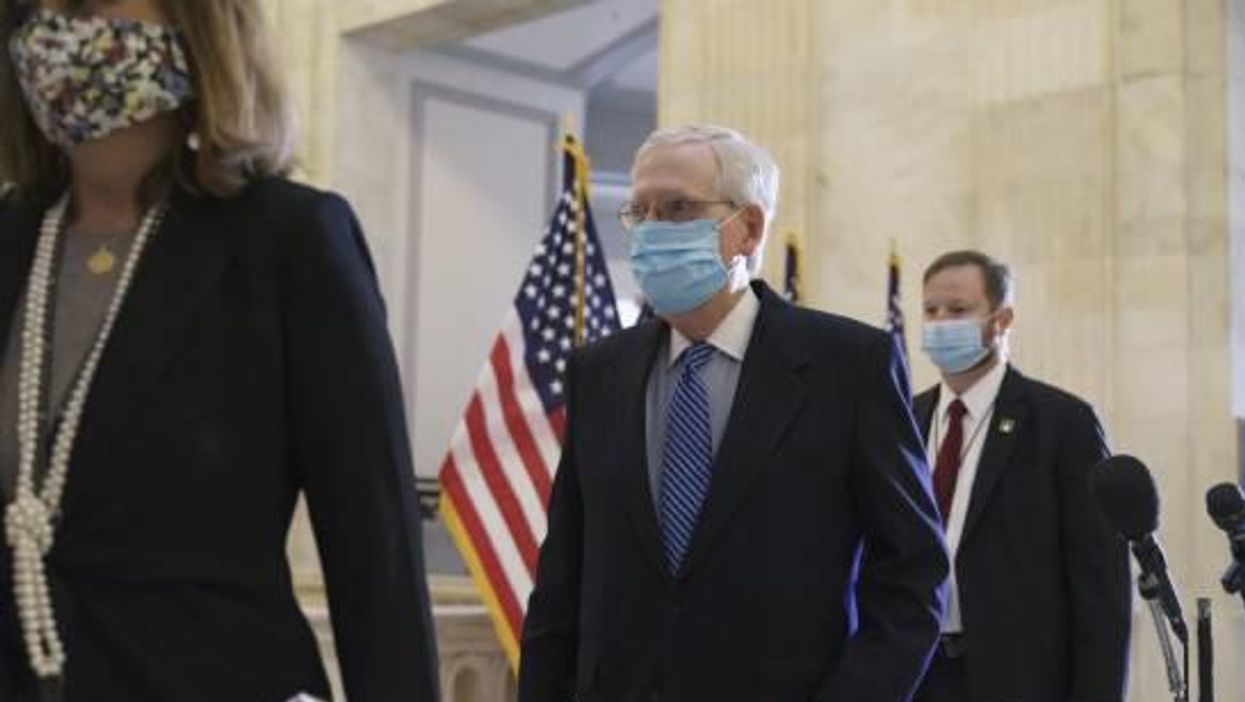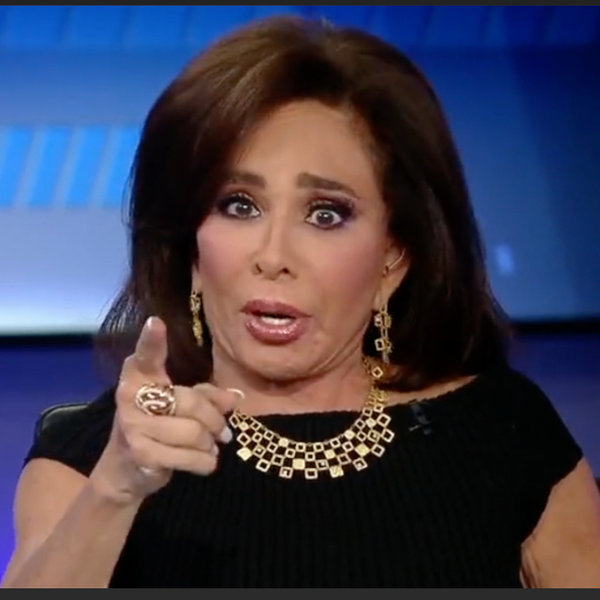How McConnell Is Holding Health Care Workers And First Responders Hostage

Senate Majority Leader Mitch McConnell
Senate Majority Leader Mitch McConnell is holding up talks on a bipartisan bill that could include badly needed aid for hard-hit hospitals around the country with demands that Democrats give up state and local relief funding before he'll let the Senate vote on it.
Lawmakers on both sides of the aisle have called for talks on the developing framework for a $908 billion COVID relief package that would include $35 billion for hospitals.
The initial summary of the bill did not include stimulus checks for individuals, though negotiations continue on that front.
The bill would, however, extend unemployment benefits currently set to run out in December, with those who have lost their jobs receiving $300 a week in benefits for 16 weeks — about half what they previously received.
It would also include provisions on aid for small businesses, providing $300 billion to the Small Business Administration's Paycheck Protection Program.
The $908 billion deal has been framed as a compromise by the bipartisan group that crafted it, with Democrats starting off with a $2 trillion deal and Republicans proposing $500 billion.
Connecticut Democratic Sen. Richard Blumenthal told a Hartford television station that the bipartisan bill would include funding to offset hospitals' financial losses as well as money for personal protective equipment and new equipment to treat COVID-19 patients.
But agreement on a COVID relief bill draft has hit a wall again, CNBC reports, as legislators spar over stipulations involving liability protection for businesses as well as state and local funding.
On Tuesday, McConnell urged a tradeoff: He would give up his demand for liability protections if Democrats would give up their demand for funding for state and local governments, saying, "What I recommend is we set aside liability and set aside state and local, and pass those things that we can agree on knowing full well we'll be back at this after the 1st of the year."
Senate Minority Leader Chuck Schumer turned down the deal, accusing McConnell of "sabotaging" negotiations.
He also noted that a failure to include state and local relief in the bill would result in the loss of jobs among educators and first responders.
House Speaker Nancy Pelosi said in a statement, "The bipartisan negotiations involving Senators and Members of the House have made good progress and must be allowed to proceed without Leader McConnell's obstruction."
Meanwhile, the U.S. death toll from coronavirus has skyrocketed to more than 2,200 a day.
Some 22% of hospitals nationwide are insufficiently staffed to care for COVID-19 patients, according to reporting by the Atlantic.
Becker's Hospital CFO Report notes that hundreds of hospitals around the country have been forced to lay off or furlough doctors, nurses, and other staff.
Moreover, hospitals around the country are running out of beds for COVID-19 patients.
West Texas hospitals have been hard hit, with coronavirus cases spiking and few resources to treat the influx of patients. Reports from southern Oregon note that doctors and nurses are working 70-hour weeks and that, if case numbers don't go down, they will soon have to ration care, reserving it for extreme cases.
On Tuesday, a San Jose, California hospital reached full capacity, and the number of available beds in intensive care units throughout Santa Clara County was down to about 30.
Hospitals are also reaching capacity in New York City, North Carolina, and New Mexico.
Children's hospitals across the country have been forced to stand in the gap, compelled by hospital overflow to admit adult patients.
In Connecticut, Sen. Blumenthal spoke frankly of how the federal government has dropped the ball on COVID relief, saying, "We have no testing strategy, no PPE strategy, no vaccine distribution strategy."
Even if the $908 billion bipartisan bill passes, he said, more relief for hospitals will be needed — and soon.
"Much more will have to be done because the losses have been very challenging," Blumenthal said.
Published with permission of The American Independent Foundation.








